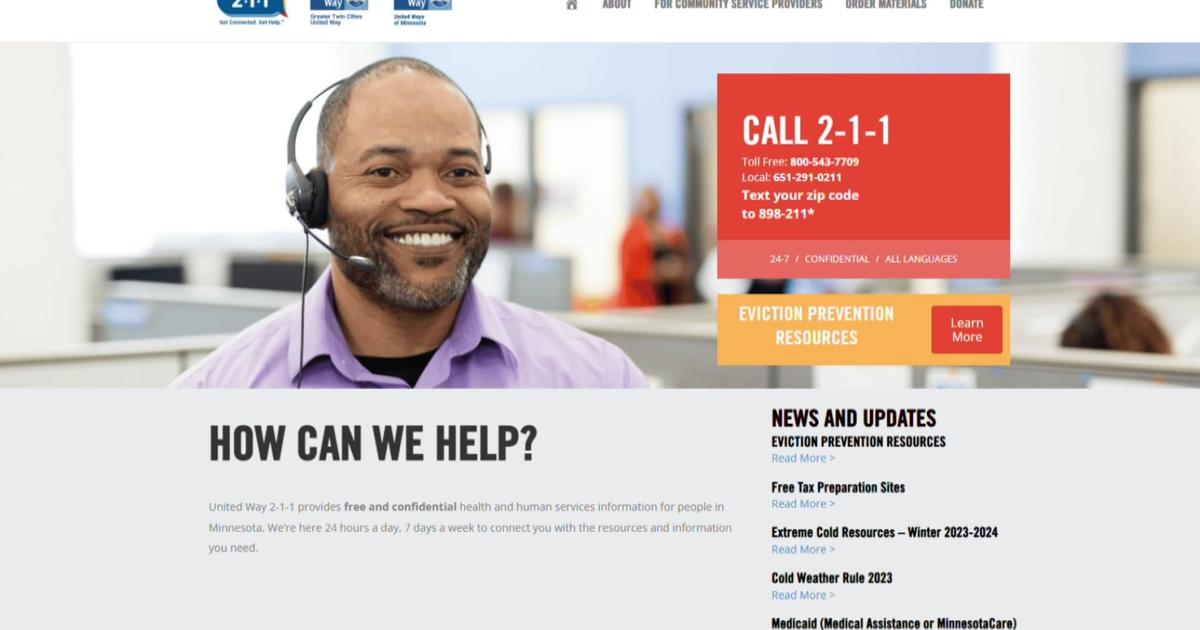6 Somali Groups Get Grants To Fight Terror Recruiting
MINNEAPOLIS (AP) — Six organizations that work with young Somalis in Minnesota have been awarded $300,000 in grants as part of a federal pilot project designed to combat terrorism recruitment, the nonprofit group that is administering the funds announced Thursday.
The grant recipients include a youth athletics group, a program that empowers Somali parents, an organization that plans to enhance youth employment opportunities and a group that addresses mental health issues for refugees. An additional $100,000 has been set aside to help with professional development and other efforts designed to build up the programs so they can sustain themselves in the future.
Marcus Pope, director of partnerships and external relations for Youthprise, the nonprofit administering the money, said investing in youth development is crucial. He said Minnesota is home to many young Somalis who are creative and bright, but a lot of them face "formidable challenges, including a sense of alienation, a search for identity as new immigrants, unemployment and poverty that can open them to recruitment by extremist groups."
Boston and Los Angeles are also participating in the federal pilot project, which the Obama administration launched in 2014. Each of the three cities received $216,000 from the federal government, and Minnesota secured additional funding from the private sector.
Minneapolis' program focuses on the state's large Somali community, which has been a target for terrorism recruiters. More than 22 men have left the state since 2007 to join al-Shabab in Somalia, and roughly a dozen people have left in recent years to join militants in Syria.
Ben Petok, spokesman for the U.S. Attorney's Office in Minnesota, called the grant announcement "an important milestone for the hundreds of Somali community leaders and volunteers who have worked on this effort for the past 18 months."
Last month, U.S. Attorney Andy Luger said he was working on getting additional funding, both federal and private. President Barack Obama signed a bill into law in December that includes $50 million for efforts that combat terrorism, with $10 million of that appropriation specifically for states' efforts to prevent violent extremism. It's not yet known how much of that money will flow to Minnesota.
In a parallel effort, Minnesota lawmakers have also allocated $250,000 to programs designed to combat terrorism recruiting, and the process of awarding those grants will start soon. Meanwhile, House Democrats have announced they'll push for another $2 million to prevent recruiting in Minnesota.
In Boston, officials will seek feedback on how the city's program should be developed, and federal funding will be administered within the federal fiscal year, said Michelle Hillman, spokeswoman for the Massachusetts Department of Health and Human Services. Officials overseeing the program in Los Angeles didn't immediately return phone and email messages for comment.
The programs have rolled out slowly, partly because of suspicion and resistance from some who say they would amount to government surveillance of Muslims. Luger signed a document promising that would not be the case in Minnesota and Youthprise was chosen to hand out funding, taking the government out of the process.
Jaylani Hussein, director the Minnesota chapter of the Council on American-Islamic Relations, said the Somali community needs services these programs provide, but community members are skeptical of anything that comes under the umbrella of countering violent extremism.
Pope said 14 groups submitted requests for over $1 million in funding in Minnesota, and a community review panel helped select recipients.
"The more we support activities that help young people integrate successfully into the community and have a positive sense of identity and self-worth, the more likely it is that they won't be recruited," Pope said.
Ben Fribley, spokesman for the Confederation of Somali Community in Minnesota, said his group was excited to be among the recipients and grateful that a concerted investment was being made in the Somali community.
"We see this as a social and economic issue and if it gets to the larger issue of countering terrorism, that's great," he said. "But we're trying to build a stronger Somali community."
(© Copyright 2016 The Associated Press. All Rights Reserved. This material may not be published, broadcast, rewritten or redistributed.)



